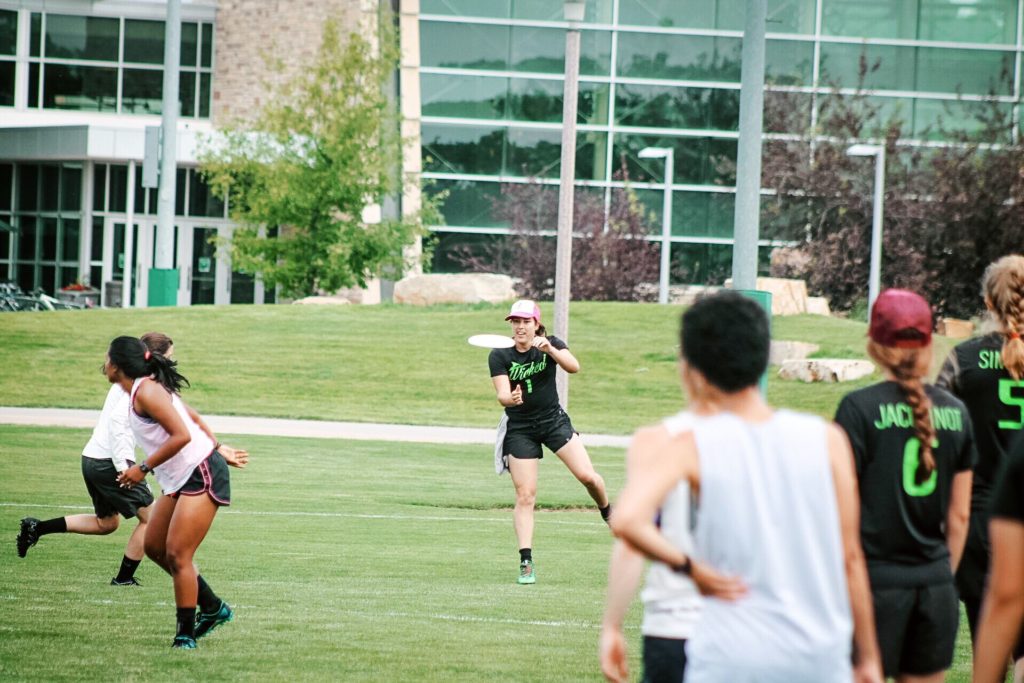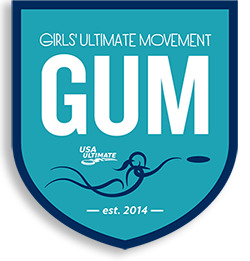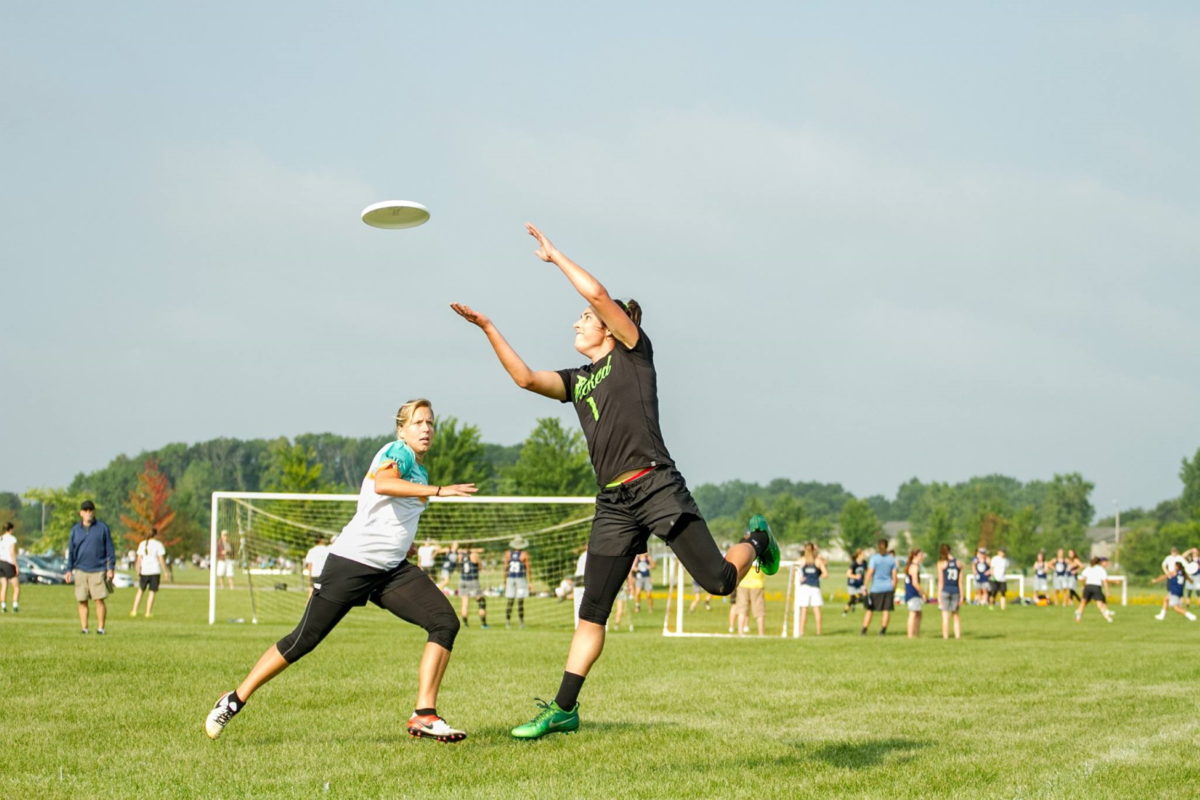“That morning, I set off driving from Omaha to Kansas City. I made it about 30 miles down the road and pulled over at this large gas station. I was within a breath of turning around and heading back to Omaha because I was paralyzed with fear on how I would be received trying out for this team.”
Ashleigh Buch’s introduction to the sport of ultimate was typical of any other person’s introduction: before college, she came across the sport through a summer running program she’d been involved in. Each morning, she and the others in her program would go on their run, and then on Fridays, as a reward if they worked really hard during the week, they would play ultimate. She had no idea how to throw the disc, but she knew she could run fast and catch it, and anything involving running she loved. When she returned to Iowa State in the fall of 2005, she heard of an ultimate team and was determined to try out. Similar to other novices of the sport, she showed up wearing cross country shoes and loving the huck drills where she would run down and catch long distance throws.
Ashleigh ended up making the team and grew to love the sport as she rapidly improved. However, she found it difficult to relate to her teammates and really feel part of the team. This was of no fault to her teammates, as she enjoyed travelling with them to a Mardi Gras tournament in Baton Rouge, and then later spending spring break with them. No, there was another internal reason that Ashleigh struggled with that would impact her ultimate experience for the next 12 years.
“I struggled mightily. I was playing a sport with men, yet I knew who I truly was and where I wanted to play. At that time, it was not nearly as acceptable socially to be out as a trans person, so I was firmly in the closet. And if I even were to transition then, there were no guidelines for trans inclusion. Despite my desire to play on the women’s team, the notion of me playing with them was never on the table, and that was something very difficult to deal with.”
In her heart, mind and spirit, Ashleigh was a woman and longed to play with other amazing women in the women’s division. However, Ashleigh played on Iowa State’s men’s team because, in the eyes of everyone else, she was a man.
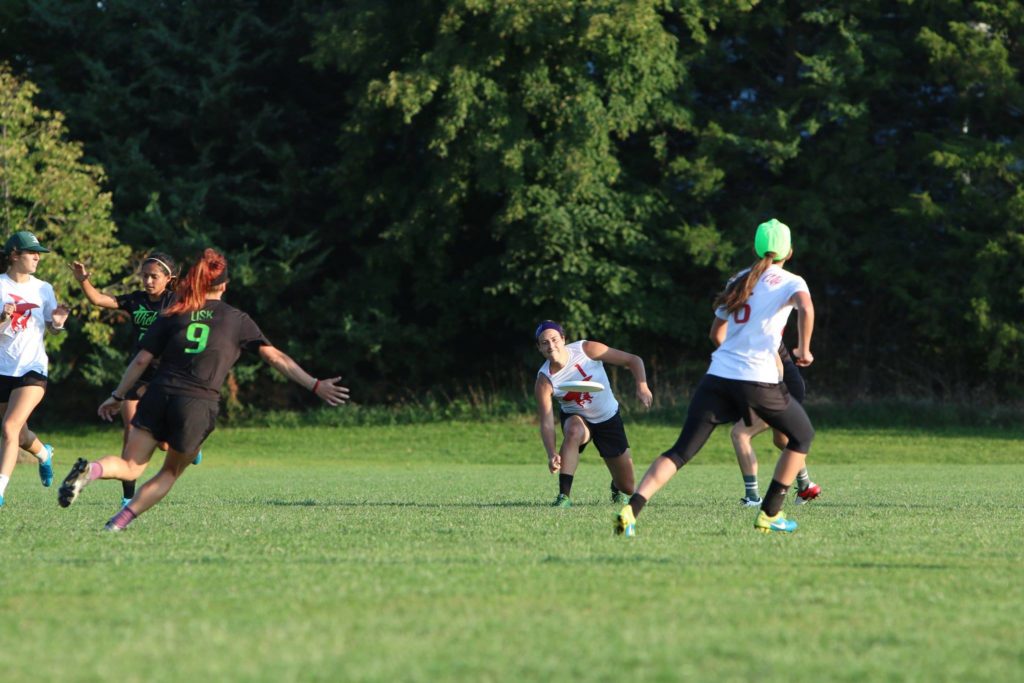
“I struggled with the notion that I was unable to be a part of the community that my heart desired to be a part of when I was constantly funneled to men’s sports.”
After playing at Iowa State, Ashleigh joined the military and deferred from playing any form of club ultimate altogether. When she was stationed out in California for two years, and while still presenting as a male individual, she met future National Team member Georgia Bosscher and would play pickup with her out in Carmel. Ashleigh was in awe of her and she learned so much from her, especially from watching her boost hucks down the field.
“Playing with people like her, when they have such a love for the game and they’re simply so good at it, was a wonderful experience.”
After her time in California, Ashleigh moved to Omaha, Nebraska, which is now her current residence. It was in the summer of 2012 when she made the decision to come out as trans, and then in 2013 when she began to transition more socially. Ashleigh describes this social transition involving being out to people and starting to live, for all intents and purposes, a double life.
“At work, I was seen as one way. Everybody perceived as a male airman, but as soon as I would leave work, it would be Ashleigh 100% of the time.”
After she came out, Ashleigh started outwardly presenting who she was and being more herself on the ultimate field. She would wear a colorful headband, have nail polish and wear the clothes she wanted to wear. As she puts it, she was “letting herself shine more than anything and not putting a lid on who I was.”
Omaha didn’t have a women’s team, but they did have a couple of pickup summer leagues that Ashleigh was involved in. Right away, she began to notice a lot of differences in the way people treated her.
“It kind of culminated with me getting verbally and physically bullied about how I was presenting,” she commented. “In the summer of 2014, people started treating me differently based off my appearance. Around that time, many of the comments started. I would hear people ask, ‘Yo, is that a dude or is that a girl?’ That led to more overt comments and then the physical bullying that I experienced.”
When 2015 arrived, Ashleigh started being even bolder with how she presented herself by starting hormone therapy to help further her transition. As she further picked up on the therapy to transition into her full self, she continued to endure verbal and physical abuse from some of her peers.
“At that point, I ended up leaving the sport altogether. I didn’t think I’d ever come back to it unless I had transitioned enough and I moved to a different town where nobody knew me, where I could just play as me, play as the woman I am. Obviously, that didn’t happen.”
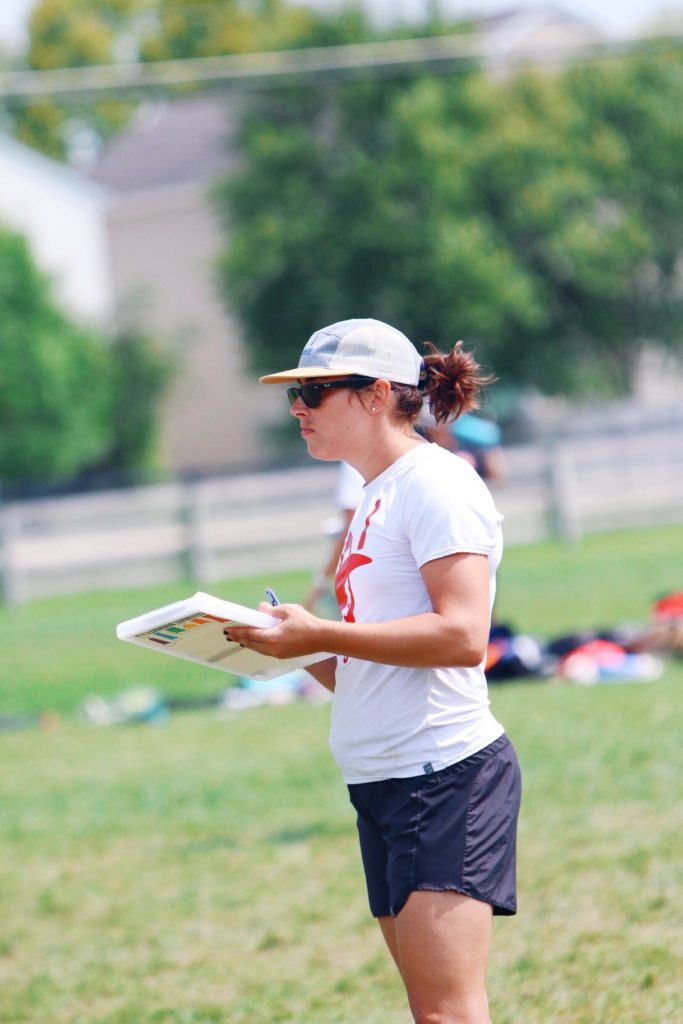
With the topic about transgender men and women and the process of transitioning and hormone therapy, there are a number of misconceptions that tend to get thrown around. For starters, trans men get ignored a lot in society and are treated as if they are invisible, whereas as Ashleigh puts it, “trans women tend to be the people that society focuses on and treats as a ‘boogeyman.’” The following are a few misconceptions about transgender people that Ashleigh highlights, both within and outside of the sports realm.
1. We’re just men wearing dresses.
One of the primary misconceptions hurled at trans women is the notion that, not only are they just men wearing dresses, but also that they’re trying to invade women spaces to do whatever types of negative things that could happen – assaulting women, making them feel uncomfortable, etc. This is especially a hot topic when it comes to bathroom policies.
“So often all the ignorance about trans women using a restroom is wrapped up in the notion that we’re going in there to assault women and girls when we literally just want to go pee, among other things, and use our gender’s bathroom, the one where we feel comfortable,” described a frustrated Ashleigh.
2. We’re men and we’re wanting to participate in a lesser division.
With sports, a huge misconception is the idea that trans women are men who want to compete in a lesser division. This couldn’t be farther from the truth on a number of levels. First, to make this blatantly false statement is to discredit the amazing female athletes both in ultimate and in the sports community. Second, many people think that trans women, who were assigned male at birth, have an innate biological advantage cisgender women, and so a trans woman joining a women’s division or league would be unfairly taking advantage of their biology to gain the upper hand over their cis female counterparts.
“That misconception is damaging because it has been used to shut trans women out of sports altogether,” explained Ashleigh. “We’re seeing it even just recently with the comments that Martina Navratilova made about trans athletes, in a sense, cheating based on their biological sex and the innate biological advantages that society perceives trans women to have which is not fully backed by science.”
3. We’re physically superior to women.
This idea that trans women have some biological advantage over women is centered on the issue of testosterone, which is typically higher in all assigned-male-at-birth individuals, and so that level needs to be lessened or shut down completely in order to be transparent and fair.
There is a wide range of testosterone in all people and all women, yet when it comes to trans women, it’s immediately assumed that since they were born with male genetic makeup, they maintain their higher level despite undergoing hormone therapy that reduces testosterone levels.
“There’s a definite difference in my physical ability from before transitioning hormonally to now. Much of that has revolved around my energy levels and tiring out quickly with my stamina being so much lower,” described Ashleigh.
As mentioned earlier, Ashleigh loved to run long distances. In fact, she had previously run six marathons and ran at the Boston Marathon. Her transition and hormone therapy involved taking testosterone blockers along with estrogen and progesterone on top of that. After she had bottom surgery, her testosterone became virtually non-existent. Testosterone is a very energetic hormone, whereas estrogen is a fat storing hormone. Between decreased energy and increased fat storage, Ashleigh began to see her endurance fall drastically.
“Now, even doing a half marathon, I’m not sure I could even do it unless I had an extremely dedicated training plan for it,” she explained. Ashleigh also explained how her limit now is about nine miles.
Even though Ashleigh’s experience is not necessarily true for everyone, as there’s a lot of research that shows hormone has zero effect as well as a large effect on physical ability, she continues to be frustrated with the notion that she’s enduring biological transitions and physical and verbal abuse to gain a false competitive advantage instead of to become the woman she truly is.
“Trans women are women, and we deserve to compete and play in sport. When you make the arguments that transgender women have some sort of biological advantage over cisgender women, it is writing off a whole group of people as being inferior to assigned-male-at-birth people which unfair and false. There are so many amazing and incredibly talented female athletes that are just as good if not better than their male counterparts.”
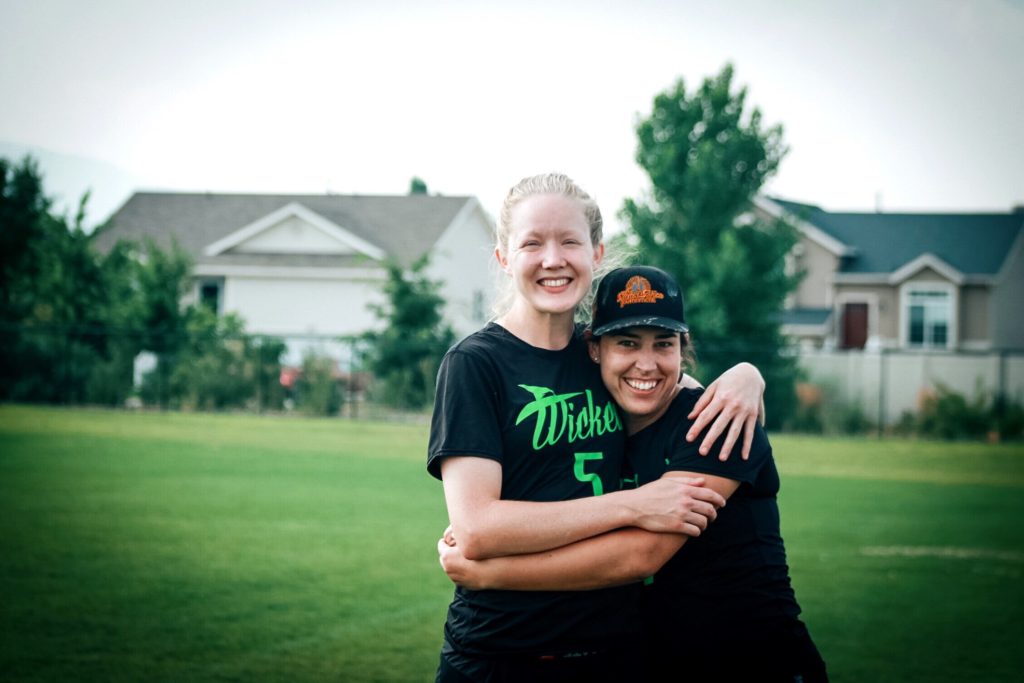
After being away from the sport for two years and transitioning hormonally for quite some time, Ashleigh decided research and see how she could become involved in ultimate again as a trans woman. After learning that she had been on hormones for the right amount of time, she began to search for women’s teams outside of the Omaha area. She found one in Kansas City called Wicked and poured her heart out to the team captains.
“I sent this really long and awkward message over Facebook basically pouring out my life story, which I tend to do when I need to just be as succinct as possible,” described Ashleigh. “I just spelled out my life story and how I wanted to play ultimate and being trans and dealing with that.”
The captains of Wicked responded with enthusiasm and encouraged her to come to tryouts, which were a few weeks away. Over that period of time, Ashleigh went back and forth in her head about whether she should make the trip, writing down pros and cons with her best friend Rachel.
“Literally, I would get to the point where I would be I’m going, 100% I’m going, and then a few days later be like, ‘I’m not going. It’s too much. I don’t want to deal with any questions about my gender identity.’”
Finally, that fateful day came when she set off driving from Omaha to Kansas City and stopped at that gas station 30 miles down the road. Should she just turn back and not face what she had endured prior to leaving the sport, or should she continue on and come back to the sport she loves as her true self.
“Thankfully, something in me was just like, ‘No, just do it. Be brave, be bold and go try out for this team.’ I’d overcome so many obstacles in my life that really prepared me for making that decision, to be brave, so I decided to go for it.”
Ashleigh made it down to tryouts and, ironically, struggled physically due to the impact of enduring hormone therapy and surgery. She was hospitalized after the tryout due to an acute kidney injury, and she was really close to calling it quits on Saturday because of how fatigued and sick she was.
“I was freaking out like, ‘Great, my body is shutting down like this. This is not good; there’s no way I’m going to make this team.”
Thankfully, Ashleigh was able to finish the tryout which, except for the injury and physical fatigue, was a wonderful experience. No one outside of the captains knew she was trans, and her experience was the complete opposite of what she endured just two years earlier.
“It was an extremely validating experience that people were just seeing me for me. I wasn’t even on the team and I didn’t know anyone, yet I felt the support from the other women immediately.” said Ashleigh. “I felt so completely loved and cared by this team of incredible women.”
Despite her physical setbacks, Ashleigh ended up performing well at the initial tryouts and was invited to the second round of tryouts, where she earned her spot on the team and has had a non-stop amazing experience ever since. Even though she still had fears of people holding misconceptions, none of that came to fruition with her Wicked teammates. For the first time, she experienced such a level of community and camaraderie that she could finally just be and exist and play the sport she loved, which inspired her to come out to her teammates as trans.
“From that point on, my love for the sport of ultimate just grew. Not only that, I became a much better player than I ever was before I transitioned.”
Without the weight of having to hide her true identity and live a double life, Ashleigh and her ultimate game blossomed.
“It has been an absolute wonderful experience being able to play as myself and be surrounded by so many amazing women.”
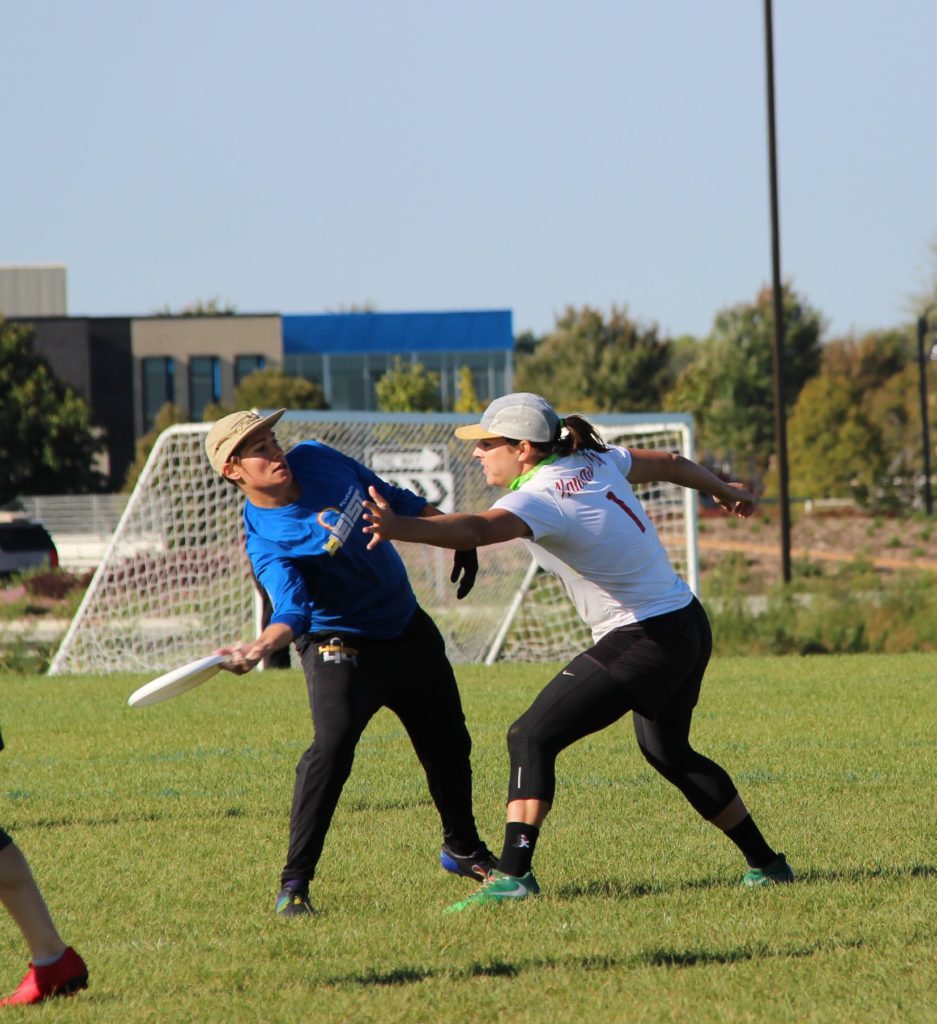
As previously mentioned, Ashleigh’s biggest fear when she started playing for Wicked was being found out by the broader ultimate community that she was trans and how they might perceive her.
“I was terrified of that. I was terrified of inadvertently stealing the spotlight away from all the amazing women on my team. Like any of the success that we might have or if we were to make nationals, it would be about me being trans rather than all the hard work and effort that each individual person on the team put in.”
However, Ashleigh would get to be in control of her narrative and would soon tell the ultimate community her story in her own words through The Sky is Red, a documentary chronicling the push for gender, race and class equity in ultimate. As many of her friends continued to nominate her to be involved in the documentary, Ashleigh was finally contacted by the documentary team in the winter of 2017 asking if they could feature her.
“From that point on, I was like, ‘Well, if I do this, then I’m definitely going to no longer be able to stay hidden and stay away from any sort of spotlight that there might be.’”
In addition to participating in the documentary, after talking with Jenna Weiner, a fellow ultimate player, friend and trans woman, Ashleigh agreed to write an article for Skyd Magazine. She knew she could help the greater trans community in ultimate by speaking out rather than staying hidden.
“I poured my experiences and my struggles with ultimate into that piece, and let it go out to the greater ultimate community. Once that article was out there, there was no going back. I knew adding my voice to the conversation could make a difference. It was coming to that determination that, while I was afraid of what ramifications it might hold if people knew I was trans, I knew that my experiences were valid and I knew they could be a huge benefit to the overall ultimate community”
Ashleigh did not stop there. After the article was published in January 2018, Ashleigh began working with USA Ultimate to collaborate on a diversity forum to be held later that year at the U.S. Open Club Championships. Even though she previously collaborated with The Sky is Red team and wrote an article about her experiences, this forum was an entirely different beast.
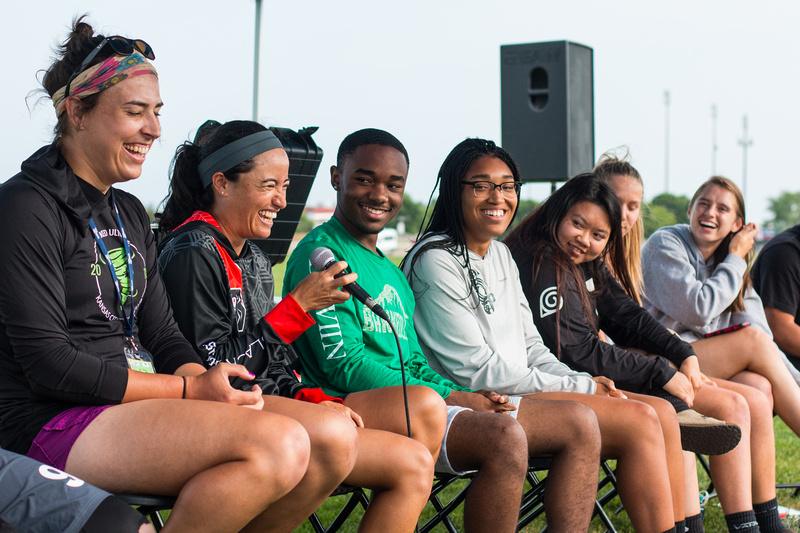
“Before I was ever out as a trans person, the thought of speaking in front of anyone and opening up in front of a group of people was terrifying to me. The thought of doing that in front of so many of my peers in ultimate, and especially so many of the amazing athletes that were at the U.S. Open, that was intense,” admitted Ashleigh.
When it was all said and done, however, the forum ended up being a very positive experience and gave Ashleigh even more confidence and support to continue to tell her story. She was even asked to consult with USA Ultimate in establishing a Transgender Inclusion Policy, outlining guidelines for trans inclusion in the sport of ultimate.
“So much happened during that first year (returning to the sport), and a lot of it was people believing in me and supporting me, and then me believing in myself and having that courage to step up and speak and share my story. Every instance of me opening up and speaking out built upon itself.”
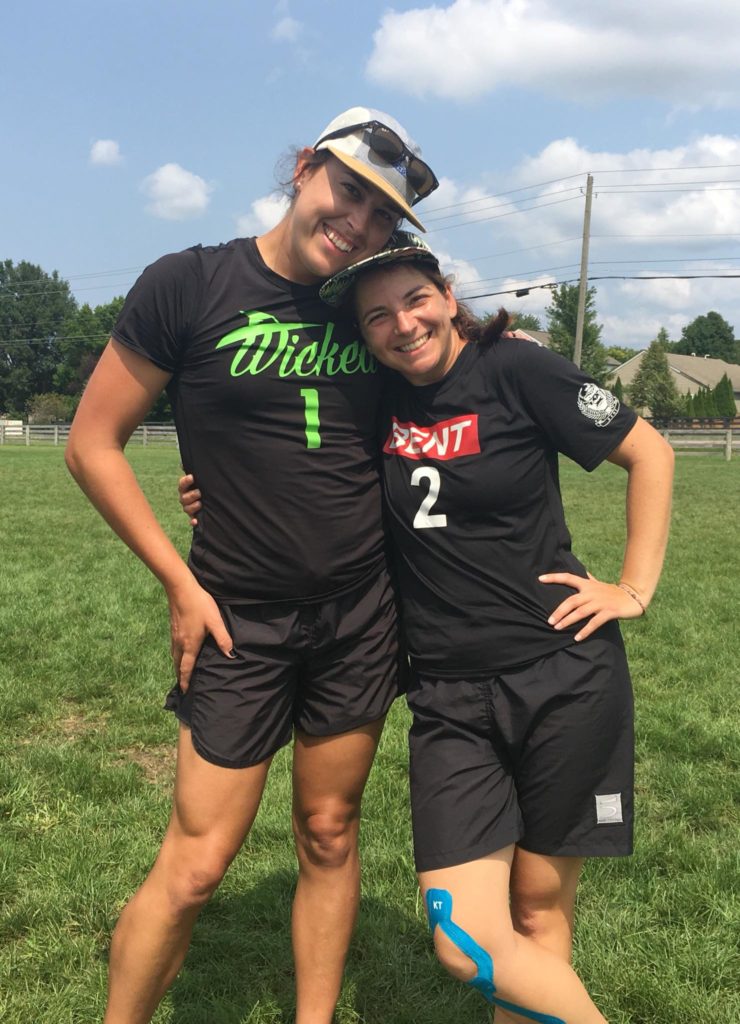
With May 17 being recognized around the world as the International Day Against Homophobia, Transphobia and Biphobia, Ashleigh wholeheartedly feels these days of recognition are vitally important. So often in our history, we see society being built to target cisgender, heterosexual white males when that group of people do not define the demographic of society in the world we live in today.
“When you’re someone who is at the margins of society, whether that’s as a woman, a person of color, a trans person or as a member of the LGBT community writ large, so often society is not built with you in mind,” explained Ashleigh. “These months and these days are there to honor individuals and honor the effort put in with our fights for equality and representation across all the different arenas. Having these days allows us to stop and reflect and, even for just that one day, put our experiences at the forefront of thought when, so often, we’re not ever at the forefront of thought.”
Not being at the forefront of thought in society has led to drastic consequences in the form of discriminatory policies, institutionalized racism and even the current transgender ban in the military. With all of this discrimination happening to marginalized groups and communities, and them having literally paid for their freedom through blood and suffering, it’s appalling to Ashleigh how people in the dominant group of individuals can be angry that underrepresented groups are being recognized and they aren’t.
“It’s like when people complain about Pride month and why we don’t have straight Pride,” lamented Ashleigh. “By default, being heterosexual was what was accepted in society, and if you were anything but heterosexual, you could find yourself in prison or beaten. It’s the same thing with the Civil Rights Movement — if you weren’t white… you were going to face discrimination at every turn. It’s just frustrating when people on the opposite side get angry at the fact that we as marginalized individuals have different days to recognize our struggle and our fight throughout history, when it’s something that we should be proud of – our identity – and we shouldn’t have to hide it.”
From literally living a double life to now being one of the faces of the transgender community in the sport of ultimate, Ashleigh has come into her own through her experiences, but she’s not alone. There are plenty of great books and resources written by trans individuals for those who want to know more.
“A person that comes to mind is Janet Mok. She’s a trans woman of color, and her experience is still powerful – a real and raw perspective on her life as a trans woman, from growing up being perceived as a boy to growing into herself and her womanhood.”
Even in our own ultimate community, Ashleigh is not the only non-binary or transgender person to speak out as an activist.
“Jack Verzuh put out a great article earlier this year about de-gendering language in our sport. Jenna Weiner has put out multiple articles and she’s very active on Twitter. Listening to trans and non-binary people and their experiences would go a long way in learning more about the community.”
As she enters her third season playing ultimate as a trans woman, coming from the fact she previously walked away from the sport, Ashleigh is excited about how her ultimate story will end this time around.
“Ultimate is amazing. It is even better when I get to be and exist as myself.”
